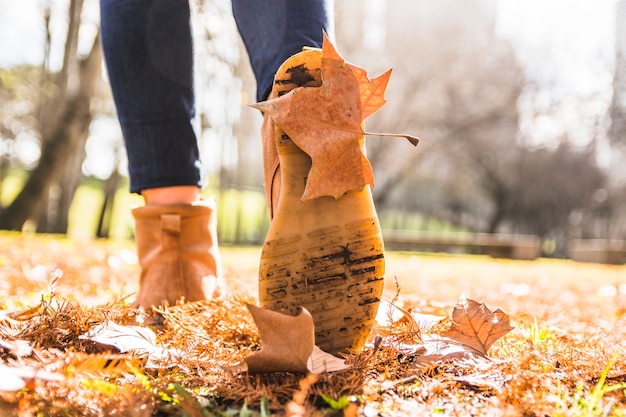Fall Pet Care Tips for Holly Springs Families


Fall Pet Care Tips for Holly Springs Families
As the North Carolina summer heat gives way to cooler, crisper air, fall brings a welcome change for both pets and their families in Holly Springs. However, this seasonal transition introduces new challenges and opportunities when it comes to keeping your furry companions healthy, comfortable, and active. At Grace Animal Hospital, located at 116 Collins Crossing Road, Holly Springs, NC 27540, our veterinary team is dedicated to supporting your pet’s wellbeing every step of the way. With fall’s shifting weather and environmental changes, it’s important to be proactive about Holly Springs pet health and to recognize the unique needs of animals during this time of year.
In this guide, we’ll share essential fall pet care tips designed specifically for local families. You’ll learn how to spot seasonal health concerns, understand why these issues occur, and discover practical steps for prevention and management. We’ll also explain when it’s time to schedule a comprehensive pet exam, and how to connect with a "vet near me" for ongoing support. Whether you’re enjoying the vibrant leaves in Holly Springs or exploring trails in surrounding communities, these insights will help you keep your beloved companions safe and thriving all season long.
Recognizing Fall Health Concerns in Your Pet
As temperatures cool and the days grow shorter, pet owners often notice changes in their animals’ behavior, energy, and health. Recognizing these seasonal shifts is the first step in providing optimal pet care during autumn.
Key symptoms to watch for include increased scratching or shedding, which may signal allergies or dry skin caused by lower humidity. Additionally, you might observe stiffness or reluctance to move, especially in older pets, as cooler air can aggravate arthritis and joint discomfort. Digestive upsets may become more common if pets ingest fallen leaves, acorns, or other yard debris while outdoors. Watch for sneezing, watery eyes, or mild coughing, as fall allergens like mold and weed pollen can trigger respiratory symptoms, particularly in sensitive pets.
Behavioral changes are also common. Some dogs and cats may sleep longer or become less active as daylight hours decrease. Others may gain weight if their exercise routines are disrupted by rainy or chilly weather. If your pet seems more anxious or stressed during storms, wind, or Halloween festivities, these responses are not unusual in the autumn months.
By staying alert to these signs and making note of any changes, you’ll be better prepared to address Holly Springs pet health needs as the seasons shift.
Why Do Fall Health Issues Affect Pets in Holly Springs?
Autumn in Holly Springs, with its variable temperatures, damp mornings, and abundant foliage, creates a unique environment for pets. Several factors contribute to increased health risks at this time of year.
Dry, cooler air can lead to skin dehydration, making pets more prone to itchiness or dandruff. Pollen from late-blooming weeds and mold spores from decaying leaves and grass can trigger allergies, both in pets with known sensitivities and in those experiencing symptoms for the first time. Additionally, the start of school and holiday preparations may disrupt family routines, resulting in less outdoor activity for pets and increased opportunities for boredom or overeating.
Fleas and ticks remain active well into the fall, as North Carolina’s mild climate allows them to persist longer than in colder northern regions. This means that stopping parasite prevention too soon could put your dog or cat at risk for infestations or diseases like Lyme and ehrlichiosis. Another common hazard is the presence of mushrooms, acorns, and other yard debris, which can be toxic if ingested during walks or playtime.
Because Holly Springs and surrounding communities experience a blend of urban and rural landscapes, pets may encounter a variety of wildlife, insects, and environmental allergens throughout the fall months. Understanding these factors allows you to anticipate and prevent many common seasonal problems.
Professional Treatment and Management for Fall Pet Health
When fall health concerns arise, timely intervention and professional support can make all the difference. At Grace Animal Hospital, our veterinarians offer a range of services to address seasonal challenges and promote overall wellness.
A thorough wellness examination is one of the most effective ways to catch early signs of allergies, skin conditions, joint discomfort, or weight changes. During your visit, our veterinary team will assess your pet’s coat, skin, and body condition, review their activity and diet, and recommend any needed adjustments for the cooler season. If your pet displays persistent itchiness, sneezing, or digestive upset, diagnostic testing such as skin scrapings, bloodwork, or fecal analysis may be advised to determine the underlying cause.
Parasite prevention remains a top priority in the fall. Our veterinarians will help you choose the right flea, tick, and heartworm preventatives for your pet’s lifestyle and exposure risk. We also offer heartworm testing and year-round guidance to ensure lasting protection; this is especially important as parasite transmission can continue even after summer ends in North Carolina.
For pets with dental health concerns, fall is an excellent time to schedule a dental cleaning, as cooler weather can make recovery from oral procedures more comfortable. Dental health is closely linked to overall pet health, and addressing tartar or gum disease now can prevent more serious problems later.
If your dog or cat is experiencing mobility issues or pain, our team may recommend diagnostic imaging or laboratory testing to rule out arthritis, injury, or infection. Treatment options may include medication adjustments, joint supplements, or physical therapy recommendations tailored to your pet’s needs.
Preventing Common Fall Hazards: Steps You Can Take at Home
Supporting Holly Springs pet health through the fall is a partnership between your family and your local veterinary team. There are many steps you can take at home to keep your pet happy and well during this transitional season.
First, maintain consistent parasite prevention through the end of the year. Continue your dog or cat’s flea, tick, and heartworm medications as directed, even if you notice fewer bugs outdoors. Keep your yard clear of fallen leaves, mushrooms, and debris that could harbor mold or toxins. When walking your pet, supervise closely to prevent them from snacking on acorns or unfamiliar plants that may cause digestive upset or poisoning.
Hydration is just as important in the fall as in the summer. Make sure your pet has access to fresh, clean water at all times, especially if you’re running indoor heating, which can dry out the air. Brush your pet regularly to remove loose fur and reduce the risk of matting, and consider using a humidifier indoors if you notice dry skin or increased shedding.
With shorter days and cooler weather, adapt your pet’s exercise routine as needed. Try indoor games or shorter, more frequent walks if the weather is rainy or cold. Monitor your pet’s weight and adjust food portions if their activity level decreases. If your pet seems anxious during autumn storms or neighborhood festivities, create a safe, quiet space for them to retreat, and use positive reinforcement to help them feel secure.
Finally, keep up with routine veterinary care and vaccinations. Schedule your comprehensive pet exam before winter arrives to ensure your pet is ready for the holiday season and beyond.
When to Schedule a Veterinary Visit for Fall Concerns
Knowing when to seek professional help is essential for your pet’s wellbeing. If you notice persistent scratching, hair loss, or red, irritated skin that does not improve with at-home care, it’s time to schedule an appointment. Digestive symptoms that last more than a day, such as vomiting, diarrhea, or refusal to eat, also warrant prompt attention, as these can lead to dehydration or signal underlying illness.
Respiratory signs like coughing, wheezing, or difficulty breathing should never be ignored, especially in young, elderly, or immune-compromised pets. If your dog or cat is limping, struggling to rise, or displaying sudden changes in behavior or appetite, a visit to your veterinarian near me is recommended for timely diagnosis and treatment.
At Grace Animal Hospital, our veterinary professionals are here to support Holly Springs pet health all year long. We encourage you to reach out for guidance whenever you have concerns; early intervention can prevent minor issues from becoming serious problems. Our team is committed to providing quality veterinary services in Holly Springs and helping you make the best choices for your pet’s health.
Keeping Your Pet Healthy and Happy This Fall: Your Next Steps
As autumn unfolds in Holly Springs and surrounding communities, the change of season brings both beauty and new responsibilities for pet owners. By staying attentive to your pet’s needs, adapting routines, and partnering with a trusted veterinary team, you can ensure your companion enjoys a safe and vibrant fall.
Remember to maintain regular parasite prevention, be alert for seasonal allergies or skin changes, and schedule your comprehensive pet exam at Grace Animal Hospital before winter arrives. If you have questions about vaccinations, dental cleaning, or heartworm testing, our veterinarians are here to help you choose the right services for your pet’s unique needs. You can learn more about the importance of a wellness examination or how dental cleaning supports overall health by visiting our website.
We invite you to schedule an appointment with our team of veterinarians by calling (919) 346-0285 or stopping by our convenient location at 116 Collins Crossing Road, Holly Springs, NC 27540. If you’re searching for a quality vet near me or seeking expert advice on fall pet care tips, Grace Animal Hospital is proud to be your trusted resource for Holly Springs pet health. Your pet’s comfort, happiness, and safety are our top priorities—let’s work together to make this autumn their healthiest yet.
Disclaimer: This blog is for informational purposes only and does not replace professional veterinary care. Always consult your veterinarian for personalized medical guidance or if you have concerns about your pet’s health. For urgent issues or emergencies, contact your veterinarian immediately. For more information on fall pet care tips and to schedule a visit, connect with our veterinary team today.



















